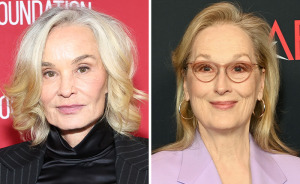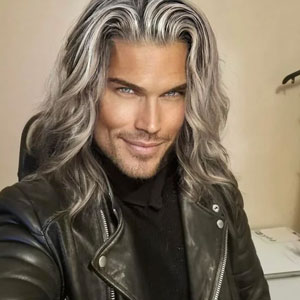Just like wine, olives, and dark chocolate, black and white movies are an acquired taste. Like with certain books, like Sun Tzu's The Art of War, one must reach a certain age to understand the notion and enjoy the content. It may be read at a young age, yet one wouldn't be able to take away from it as much as they would if they read it after their 20s. Or quit on it just 10 pages into the book. The same goes for old movies shot in black and white.
Just like one may hate the tannins that make the wine bitter, some may think that the black and white picture in classic movies takes away an appeal from the film. Nevertheless, it's the tannins that create the exquisite flavor of the wine that so many enjoy. We can claim that vibrant pictures just didn't exist in the day when old classic movies were made, and there was no other choice than to make movies in grayscale. However, there are quite a few reasons why more modern in-color remakes of some of the best black and white movies stand nowhere near the originals.
In essence, the use of black and white gives the image an "evergreen" characteristic that keeps it from looking out of date. Other than that, like in photography, black and white lets the viewer concentrate on different aspects of the shot by removing any color distractions and really focusing your attention on what's in the frame. Therefore, the black and white scale actually favors the best classic movies.
While the camera work and color palette play a significant role in the film's appeal, we often regard works of cinema as classics if they have transcended time and trends with indefinable quality. And many of the best old movies filmed in black and white did. Below, we've gathered some of the best B&W or film noir movies that will take you back to the times when some of the most significant works of cinema were made. Do you have a favorite black and white movie? Let us know!
This post may include affiliate links.
To Kill A Mockingbird
1962 | 2 hours 9 minutes | Directed by Robert Mulligan
Starring Gregory Peck, John Megna, Frank Overton
Many have heard of this masterpiece by Robert Mulligan, yet very little know the actual story. Adaptation of Harper Lee's novel of the same name goes about the 6-year-old Scout Finch (Mary Badham) and her elder brother Jem (Phillip Alford). They reside in the tranquil Alabama town of Maycomb, where they spend a lot of time hanging out with their friend Dill (John Megna) and spying on Boo Radley (Robert Duvall), a secretive and enigmatic neighbor. The children are exposed to the perils of racism and stereotyping when their respected lawyer and widower father, Atticus (Gregory Peck), defends a black man named Tom Robinson (Brock Peters) against false rape accusations. It is both an intense drama and a coming-of-age story about children. The love and respect everyone involved in adapting Harper Lee's book to the screen had for the original source material makes To Kill A Mockingbird such a remarkable work. It is visible in every frame of the video. Each and every performance in this movie is faultless. It is a terrific movie that has stood the test of time and will continue to be a significant part of film history for as long as the genre is around.
Psycho
1960 | 1 hour 49 minutes | Directed by Alfred Hitchcock
Starring Anthony Perkins, Janet Leigh, Vera Miles
Phoenix secretary Marion Crane (Janet Leigh), who has stolen $40,000 from her company to flee with her boyfriend, is on the run and stops at the run-down Bates Motel for the night. There she meets the amiable but uptight owner Norman Bates (Anthony Perkins), a young man with a fascination for taxidermy and a tense relationship with his mother. Despite being frequently mimicked, mocked, cited, and exhaustively studied for over six decades, Psycho still hasn't aged. This is the rare example of a much-ballyhooed film that truly deserves all the hype. It would have been nice to have experienced the movie without knowing the plot twists. Unfortunately, the big surprises are not possible for most viewers since so many of the scenes are part of our popular culture. Still, there were, however, many unexpected surprises. Visit the Bates Motel; Norman might have a room available. You owe it to yourself.
Schindler's List
1993 | 3 hours 15 minutes | Directed by Steven Spielberg
Starring Liam Neeson, Ralph Fiennes, Ben Kingsley
This film tells the story of Nazi officer Oskar Schindler, who secretly saved hundreds of Jewish people from concentration camps. Schindler's List's portrayal of the historical horrors is incredibly potent and effective. Perhaps no one can watch Schindler's List without crying. It's a rare achievement for a film that's 3 hours long to feel too short. This is arguably Steven Spielberg's most notable film to date. At least for him. Spielberg employs all of his filmmaking prowess to produce this classic film based on a true story. The starkness of the black and white images helps put a little distance from the terrible events. There simply isn't another movie like this one. Other films have attempted to depict the genuine horrors of the Holocaust. Still, none of them have been as effective as Schindler's List. It is an outstanding achievement that stands out as a mammoth work of cinema.
Citizen Kane
1941 | 1 hour 59 minutes | Directed by Orson Welles
Starring Orson Welles, Joseph Cotten, Dorothy Comingore
The plot of Citizen Kane is surprisingly straightforward. A reporter is tasked with understanding newspaper tycoon Charles Foster Kane's (Orson Welles) final words. The course of his inquiry eventually paints a fascinating picture of a complex man who climbed from obscurity to astounding heights. While Kane's friend Jedediah (Joseph Cotten) and his mistress Susan (Dorothy Comingore) provide some insight into his life, the reporter worries that he may never fully understand the significance of Kane's last word. Apart from his own, we hear just about every perspective about Charles Foster Kane. The narrative takes place after his passing, allowing us to witness the significant events that led up to it. It isn't until the very end that we truly fathom who he was and what made him tick. Although the story develops by flitting between nonlinear flashbacks, it is surprisingly simple to follow. Since there is no pause in the flow of events, it gives the impression that we are being duped into believing there is something far bigger at play. If you haven't seen this masterpiece, don't allow the fact that it's old and in black and white to dissuade you. In every way, a truly classic film.
The Best Years Of Our Lives
1946 | 2 hours 50 minutes | Directed by William Wyler
Starring Myrna Loy, Dana Andrews, Fredric March
The plot concerns three World War II veterans, two of whom are traumatized or disabled. When they finally reunite with their families in the American Midwest, they soon learn that their families have been irrevocably changed. Coming home, returning veterans of all backgrounds met a brick wall: wives who no longer loved them, jobs that had dried up, and a culture alien to them. The greatest thing about this movie is that, despite being set in the post-World War II era, the issues it addresses are just as relevant today as they were back then. It is an entirely different kind of accomplishment when the film makes logic and actually works as a story that is emotional and heartwarming without being overly sentimental. Fantastic, rich, undiluted, and full-blooded experience.
The Treasure Of The Sierra Madre
1948 | 2 hours 6 minutes | Directed by John Huston
Starring Humphrey Bogart, Walter Huston, Tim Holt
The film's action takes place in the 1920s when two struggling Americans looking for work in Mexico persuade an elderly prospector to assist them in mining for gold in the Sierra Madre Mountains. The movie's central narrative is what happens to them once they discover the gold they are looking for. Based on a book by the enigmatic B. Traven, the film explored the destructive effects of growing greed, mistrust, and hatred on three men who team up to look for gold in Mexico. For the extreme realism it depicts, The Treasure of the Sierra Madre is a movie decades ahead of its time. The film has a modern feel and could easily compete favorably with anything released today. Go ahead and watch this as a favor for yourself. It contains a powerful moral and truth as a tale of rags to almost riches.
The Grand Illusion
1937 | 1 hour 53 minutes | Directed by Jean Renoir
Starring Jean Gabin, Dita Parlo, Pierre Fresnay
During WWI, two French soldiers are captured and imprisoned in a German P.O.W. camp. Several escape attempts follow until they are eventually sent to a seemingly inescapable fortress. La Grande Illusion is one of those movies that confirms a movie fan's faith in the ability of filmmakers to use cinema as an art form to unite people. The time of the film's production and distribution is crucial. This was published when the Nazi party in Germany was on the rise, and another world war was looming. It could be that the director made this movie to urge people to turn away from fanaticism. Yet, one can't help but admire Renoir's intentions, even though this didn't prevent another war from happening. La Grande Illusion is not your typical war movie. It had genuine significance during WWII and should be seen for this reason alone. This is a good movie that lives up to its reputation and should appeal to fans of classic films.
Sunset Boulevard
1950 | 1 hour 50 minutes | Directed by Billy Wilder
Starring William Holden, Gloria Swanson, Erich von Stroheim
The plot centers on rogue screenwriter Joe Gillis (William Holden), who accidentally meets fading movie star Norma Desmond (Gloria Swanson). One may consider Sunset Blvd. a thesis on what fame does to different people. Fame created a fantasy world for Norma Desmond, trapping her for all time. She resides with her butler Max (Erich von Stroheim) in a dilapidated old mansion. She passes her time daydreaming about her triumphant return. Fan emails and Joe Gillis's desire for her comeback are the only things keeping her legend alive. This movie presents a rather pessimistic image of Hollywood by demonstrating what Hollywood does to individuals like Norma. It elevates them to stardom, assures them of their greatness, and then snubs them when they are no longer required. Expertly directed by Billy Wilder, Sunset Blvd. has a snappy script and is appropriately shot in moody black and white. This film genuinely offers everything. It's not just a narrative about Hollywood or an aging actress. It's also about the real issue of giving up on dreams. Hollywood's circle of life won't be much more advanced in 2050 than it was in 1950. Thus there aren't many "dated" elements in this movie. Watch this movie if you haven't already because it has something to offer almost everyone.
Paths Of Glory
1957 | 1 hour 28 minutes | Directed by Stanley Kubrick
Starring Kirk Douglas, Ralph Meeker, Adolphe Menjou
The trench combat between France and Germany in World War I, which was immensely destructive and pointless, is the background for Paths of Glory. Frenchman Colonel Dax, played by Kirk Douglas, is tasked with attacking a highly entrenched German position. The sole justification for this charge is that the commanding general thinks winning the battle will earn him a promotion. The commander becomes enraged when the assault fails to move ahead despite the intense enemy fire and orders the selection of three men at random to face trial for cowardice. This crime carries a death sentence. These men are defended by Col. Dax at their court-martial. Kubrick never gave the impression that he was particularly fond of overtly emotional scenes during his career. The one exception is Paths of Glory. The last moments in the soldier's tavern distinguish it as a masterpiece and serve as the cherry on top of the later scenes, which are tremendously emotional and moving. Hands down, one of the best anti-war movies ever created. It is on par with All Quiet on the Western Front (1930). Both will be considered classics in 200, 300, or a thousand years' time.
The Road
1954 | 1 hour 48 minutes | Directed by Federico Fellini
Starring Anthony Quinn, Giulietta Masina, Richard Basehart
The film centers on a young, poor, and naive Gelsomina (Giulietta Masina), bought from her mother by circus strongman Zampan (Anthony Quinn). Zampan wants her to be his wife and partner. Gelsomina faithfully puts up with his coldness and brutality as they tour the Italian countryside as performers. She is the ideal counterbalance to the self-centered and abhorrent Zampano because she yearns to love and be loved. And although Zampano's harshness harms Gelsomina's life, her influence will ultimately affect him more profoundly. The movie depicts a defeated Italy during World War II. Italy was fighting to recover from the terrible circumstances. The film's director and his companions show an impoverished nation attempting to adjust to the new situation. Despite the hardships and suffering depicted in the movie, it still gives hope for the future. Other than showing a war-torn Italy, it's also a story about love and what it can do to people. More than love, it is about a guy who develops insight and understanding from love. The earthy, thought-provoking film La Strada will undoubtedly stay in your mind. The visuals and sensations it evokes may fade over time, but its spirit will always be with you. Once Fellini touches you, it stays forever.
Arsenic And Old Lace
How can a film about insanity, murder, hidden bodies, Teddy Roosevelt, and disguised criminals possibly be funny? Not only is it funny but delightfully so.
Casablanca
It's A Wonderful Life
Roman Holiday
High Noon
The Maltese Falcon
Bringing Up Baby
Battleship Potemkin
This 1925 masterpiece was so revolutionary for its time and is still well worth watching.
Dr. Strangelove Or: How I Learned To Stop Worrying And Love The Bomb
12 Angry Men
A Christmas Carol
Some Like It Hot
The Big Sleep
A Hard Day's Night
King Kong
A Streetcar Named Desire
Metropolis
Notorious
What Ever Happened To Baby Jane?
Cape Fear
Harvey
Double Indemnity
Strangers On A Train
Fail Safe
The Kid
The Elephant Man
Shadow Of A Doubt
A Raisin In The Sun
Inherit The Wind
It Happened One Night
Sabotage
The Great Dictator
Who's Afraid Of Virginia Woolf?
Wings
The Jazz Singer
The Manchurian Candidate
Sullivan's Travels
Modern Times
Foreign Correspondent
Blonde Venus
Judgment At Nuremberg
How Green Was My Valley
The Third Man
Jane Eyre
Witness For The Prosecution
The Ghost And Mrs. Muir
Goodbye, Mr. Chips
Mr. Smith Goes To Washington
The Man Who Shot Liberty Valance
The Last Picture Show
The Killers
All The King's Men
The Night Of The Hunter
Young Frankenstein
City Lights
Le Trou
The Gold Rush
Wild Strawberries
The Thing From Another World
Invasion Of The Body Snatchers
Lenny
Ed Wood
Dead Man
The Man Who Wasn't There
Good Night, And Good Luck
The Philadelphia Story
His Girl Friday
Rebecca
Carmen Jones
The Hustler
Dracula
All Quiet On The Western Front
Lost Horizon
All About Eve
Rashomon
Manhattan
Hobson's Choice
The Sea Hawk
The Grapes Of Wrath
The Song Of Bernadette
The Miracle Worker
Kind Hearts And Coronets
The Seventh Seal
The Razor's Edge
I Remember Mama
Random Harvest
The Hunchback Of Notre Dame
The Apartment
The Heiress
Now, Voyager
The Lady From Shanghai
Mrs. Miniver
8½
Seven Samurai
Great Expectations
The Picture Of Dorian Gray
Destry Rides Again
Out Of The Past
On The Waterfront
Born Yesterday
Bicycle Thieves
The 400 Blows
Raging Bull
Touch Of Evil
Oliver Twist
Stagecoach
Advise And Consent
The Innocents
Harakiri
Pather Panchali
Woman In The Dunes
High And Low
Sansho The Bailiff
M
Yojimbo
Ikiru
Children Of Paradise
The Young And The Damned
Red Beard
Rocco And His Brothers
The Cranes Are Flying
Late Spring
Tokyo Story
Sunrise: A Song Of Two Humans
The Passion Of Joan Of Arc
Brief Encounter
Brighton Rock
Kiss Me Deadly
The Killing
A Man Escaped
The Wrong Man
Sweet Smell Of Success
Throne Of Blood
Black Sunday
Jules And Jim
The Haunting
The Servant
Repulsion
Andrei Rublev
Alice In The Cities
Overlord
Kings Of The Road
Eraserhead
Radio On
Broadway Danny Rose
Stranger Than Paradise
Down By Law
La Haine
The White Ribbon
An American In Paris
Shane
La Dolce Vita
From Here To Eternity
Please change the gallery title. All the movies are amazing but right now it says "movies that started the classic B/W era". Many of these actually ended the era and others were in color. It shows "To Kill a Mockingbird" as the header for the gallery and it came out in 1962. By then, almost every movie was color. Early classic B/W movies like "Battleship Potemkin", "The Gold Rush", "The Jazz Singer", "Wings" (first Oscar best picture) started in the early 20s and the Golden Age of Hollywood kicked off in 1930.
Too many repeated entries. Unless I started skimming too soon, No 39 Steps, no Roshamon--too many other greats missing to go on with the list.
And stopped telling anything about the movies after the first few. Why does BP do that?!?
Load More Replies...I'm trying to find out the name of a black and white film that I saw on television. The movie was about a young girl around 12 or 13 years of age she monologs through the entire movie. The only thing I remember her talking about was her best friend a little boy was dying And I remember she wanted to go Brothers honeymoon with them She was so Naive.
Please change the gallery title. All the movies are amazing but right now it says "movies that started the classic B/W era". Many of these actually ended the era and others were in color. It shows "To Kill a Mockingbird" as the header for the gallery and it came out in 1962. By then, almost every movie was color. Early classic B/W movies like "Battleship Potemkin", "The Gold Rush", "The Jazz Singer", "Wings" (first Oscar best picture) started in the early 20s and the Golden Age of Hollywood kicked off in 1930.
Too many repeated entries. Unless I started skimming too soon, No 39 Steps, no Roshamon--too many other greats missing to go on with the list.
And stopped telling anything about the movies after the first few. Why does BP do that?!?
Load More Replies...I'm trying to find out the name of a black and white film that I saw on television. The movie was about a young girl around 12 or 13 years of age she monologs through the entire movie. The only thing I remember her talking about was her best friend a little boy was dying And I remember she wanted to go Brothers honeymoon with them She was so Naive.

 Dark Mode
Dark Mode 

 No fees, cancel anytime
No fees, cancel anytime 




















































































































































































































































